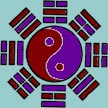

Can Feng Shui Change Your Destiny?

|
|
Can Feng Shui Change Your Destiny?
|
|
By Kartar Diamond
Almost everyone, except the devout atheist or existentialist, believes or thinks it is plausible that they have come into the world with a destiny. This word means different things to different people however. For some, it can mean their potential. We can say that a person is living their destiny or their fate, which implies some free will, as if to say a person chooses destiny over fate based on their consciousness or the choices they make. (i.e. Destiny=Good/Fate=Bad.)
Others believe the destiny is very set. A person comes into the world with certain lessons to learn and life is a pre-writ experience that is going to teach or expose a person to the lessons they need to learn or experiences they need t o have. As the saying goes, “it was destined.” Or another cliché: nothing happens by accident.
So where does the practice of Feng Shui weigh in on the issue of destiny versus fate, or free will? According to the Taoist philosophy behind Feng Shui, it appears to be somewhat of a blending of the two aspects just described. I always say in my classes that if it is not your destiny to be a top world leader or celebrity, then all the Feng Shui remedies will not make it so. In America, we have this strange phenomenon that some of our U.S. Presidents have a genetic link with each other, such as being very distant cousins only revealed through extensive genealogy reports. This includes the unlikely pairing of former V.P. Dick Cheney with current President Barack Obama.
In Feng Shui Theory, we believe that a person comes into the world with a certain potential, like an outline to a story. But even that could be interpreted as free will if one ascribes to the theory of reincarnation and that all souls make choices which affect them from one incarnation to the next. Many people take advice from astrologers, who often astonish their clientele by predicting accurately when certain things will or have happened in their lives. This lends itself more to the belief that we don’t have much free will at all.
Feng Shui takes a more relaxed view, in that if something is meant to happen, the remedies and alterations to the environment can make things happen faster. Or if the environment does not support the destiny, then the true potential of a person will not be realized, or at least not on schedule. As an example, in the year 2009 there is energy in the Northeast section of everyone’s home associated with love and sex. If a person’s bedroom landed in this defined area of their home, Feng Shui adherents would predict that the person has a stronger chance of meeting someone for a romantic encounter or the beginning of a love relationship in that year. This is based on the concept that where you spend most of your time will affect you and most people sleep about one third of their lives, so the bedroom is always a critical area to look at in a Feng Shui Analysis.
Now, if it is not in someone’s destiny to be in a love relationship, or at least not when the Feng Shui energies indicate a great potential, then the combination of negative and positive influences might cancel each other out. Or, as I have seen so often in my practice, romantic energies can get stirred up for something short-lived, but if it is not the right time for someone to be in a relationship (revealed through personal astrology), then the greatest potential will not manifest.
Feng Shui remedies can work powerfully or in a more subtle
manner. They can appear to work instantaneously or gradually. What could easily
be varying the results is the pre-writ destiny which works together with the
environment and physical surroundings that a person places themselves in.
For more information on traditional feng shui and Kartar Diamond's services, go www.FengShuiSolutions.net Her latest book, The Feng Shui Matrix: Another Way to Inherit the Earth includes many techniques for increasing your personal wealth and creativity.
Visit Kartar at www.fengshuisolutions.net |
 |

|
||
|
©
Melt Magazine 2009
|
||